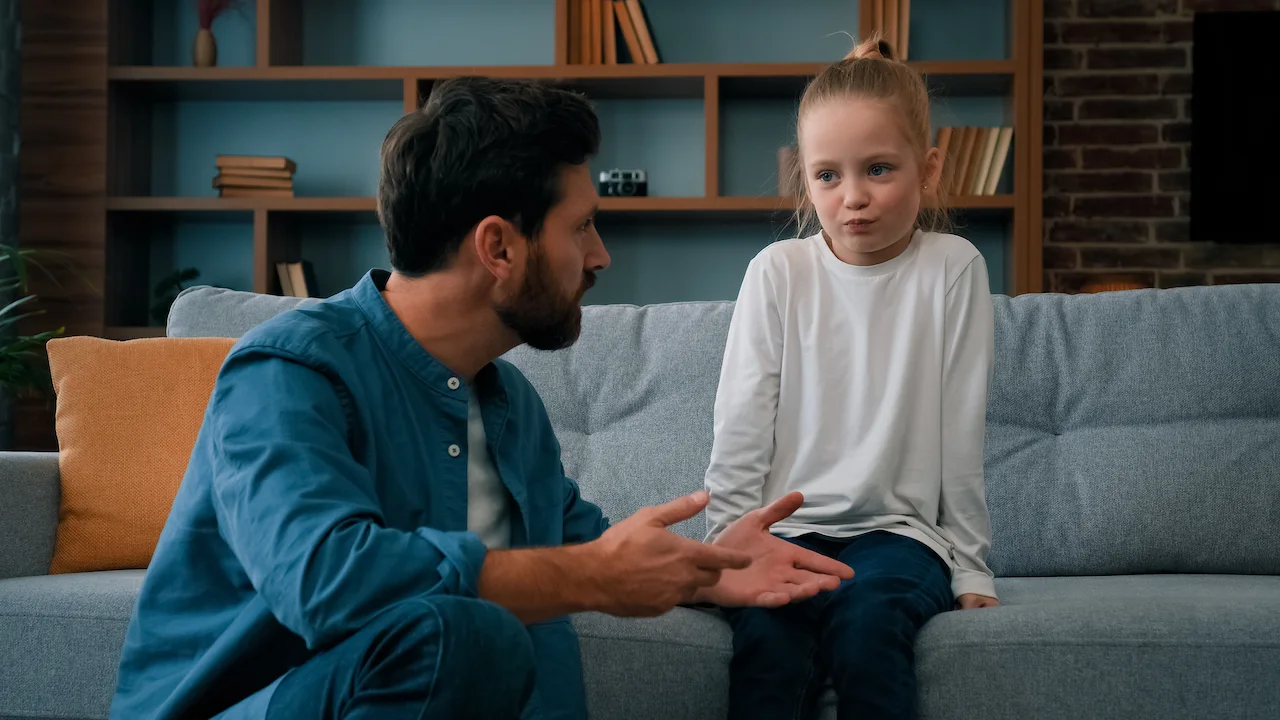

Divorce is painful, but it is especially difficult for children. Divorce eats away at the children’s security, and they sometimes might blame themselves for the breakup. This is why you and your spouse should remind your children that the divorce is not their fault.
Tell them that you and your spouse decided that it would be best to separate because the two of you had problems that couldn’t be worked out. If your child is under age 3, he might need extra reassurance that in spite of the divorce, both of you still love him and are committed to raising him well.
However, if you have older children, they might get angry and lash out at you. This is a normal reaction, and you want to allow them to process their feelings. Here are more ways to help your child through a divorce.

Just because you’re divorced doesn’t mean that you get too lenient with your daily routine. Your children already feel insecure about what their lives will look like going forward, so one of the best things you can do is maintain structure in your home.
Have the kids keep doing the same chores they did when you and your spouse were married. Even if your ex-spouse doesn’t give them structure when they visit him, don’t get frazzled about it. Let the kids know that when they are at home with you, they need to follow a daily routine.

You may hate your ex-spouse, but it’s important not to belittle him in front of the kids. Remember that your ex-spouse is their dad, and they love him. You don’t want to create negative images of their dad in the kids’ minds, and this could cause them not to have the best relationship with him. If you’re hurting about the divorce, seek counseling from a licensed therapist.
Your children love both of you equally, and it isn’t fair to place them in the middle of disagreements between you and your ex-spouse. Don’t tell your child to ask the other parents questions that are too personal. This puts him in an uncomfortable situation. It’s better to contact your ex-spouse directly if you want to discuss matters concerning the kids.
Remember that the kids might not get over the divorce quickly, so it’s crucial that you not expect them to heal fast and move on.
Show patience and compassion to them, and give the kids as much time as needed to process the pain they feel. In time, they’ll experience genuine healing, but for now, they’re dealing with all kinds of emotions that range from anger to fear. Acknowledge their feelings and answer any questions they have.
These strategies can help you be there for your child as you go through a painful and life-altering situation. If you’re in Louisiana and you need an experienced family law attorney, contact us. We’re here to assist you in family legal matters such as divorce and child custody cases.
Navigating a divorce is undoubtedly challenging, and when children are involved, the complexity deepens. Your child’s emotional well-being should be at the forefront of your efforts. Remember that open communication, patience, and consistency are key.
By assuring your child of their importance, maintaining routines, refraining from negativity, and seeking professional help if needed, you can provide the support your child needs during this transitional period.
And when it comes to the bigger picture, strategically timing your divorce filing can help reduce emotional disruptions and create more stability for everyone involved.
Q1: Will my child’s behavior change immediately after the divorce? Children’s reactions to divorce vary. Some might show immediate changes, while others may take time to process and display emotions.
Q2: How can I encourage my child to express their feelings about the divorce? Create a safe space for open conversations. Let your child know it’s okay to share their feelings and concerns without judgment.
Q3: What if my child blames me for the divorce? Reassure your child that the divorce is a decision between adults and not their fault. Be patient in addressing their emotions.
Q4: Can joint counseling sessions with my ex-spouse and child be helpful? Yes, joint counseling can provide a neutral environment for communication and understanding, fostering healthier relationships.
Q5: Is it okay to introduce a new partner to my child post-divorce? Take it slow. Ensure your child has adjusted to the divorce before introducing new relationships. Openly communicate with your child about the situation.

For unmatched family law representation in Baton Rouge, turn to Mayeux Law. Led by Kaitlin Mayeux, our team’s deep expertise and compassionate approach ensure your rights and unique needs are prioritized.
With a commitment to excellence and community, Kaitlin is ready to guide you through your legal challenges.
Contact Kaitlin at (225) 229-4529 to begin your journey toward resolution.


Stay up to date with the latest family law insights, tips, and updates from Mayeux Law. Sign up for our newsletter today and get valuable information delivered straight to your inbox!